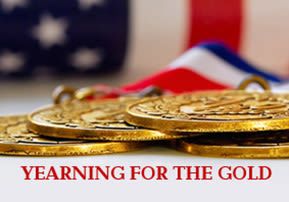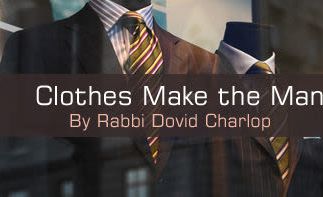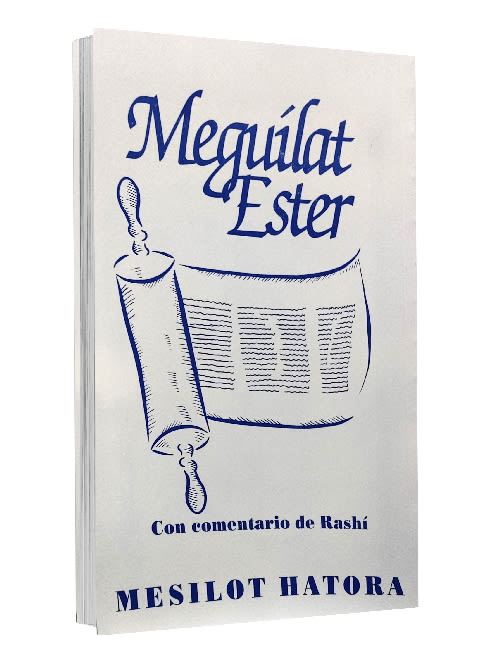
Bechukotai: Yearning for the Gold
Why does the world honor the Olympic gold medalist and not the Torah scholar? Could it be that the champion athlete is more dedicated?

Parshat Bechukotai
For a person searching for the truths of successful living, the Torah provides a clear and inspiring path. We are told about the beauty of Shabbat, the necessity of prayer, and many other specific mitzvot to bring us closer to our Father in Heaven. However it is imminently clear from this week's Parsha that the study of Torah is an essential part of a Jew's spiritual diet. The blessings that Hashem is waiting to shower upon the Jewish people are dependent on the fulfillment of the requirements mentioned in Parshas Bechukosai, one of which includes learning Torah.The opening words of our Parsha, "If you will go in my statutes (chukim)", are explained by Rashi, the great Medieval commentator, as referring to engaging ourselves in the study of Torah. And not just learning but "full involvement" in Torah (amailim). We can understand that for a life of blessing the mind needs to be engaged as much as the heart and the body, but why is there a requirement to be "fully involved" in the study of Torah?
To answer let's turn to the world of the upcoming Olympics.
In July, London will host the 2012 Summer Olympics. Athletes from around the globe will vie for the prestigious Gold Medal in track and  field, swimming, and a host of other sports. Hidden in these upcoming competitions is a possible answer to the question posed above.
field, swimming, and a host of other sports. Hidden in these upcoming competitions is a possible answer to the question posed above.
The great Chassidic leader, Rabbi Mordechai Yosef Leiner, the Rebbe of Ishbitz (1801-1854), teaches us a fascinating concept. Every person and every nation in the world has its own unique quality. For some it is intellectual greatness, for others an emotional depth, and others physical prowess. But there is one overriding quality that the nations of the world exhibit. That is the quality of yearning (teshuka).
Everyone is drawn and deeply motivated by something. We see in the world around us people expending tremendous energies to realize their unique dreams.
The Rebbe from Ishbitz further explains that the yearning of the nations is highly relevant to the service of the Jewish people. His idea is as follows: If we see some positive quality in the world, it is there for us to use in bringing ourselves closer to the Creator.
If, for example, we see the excitement, competition, and challenge of an Olympics, we should know that these are really sparks of holiness of a special quality that should be used and transferred to our spiritual growth. Until these qualities are used by the Jewish people, they don't have their full expression in this world.
Based on the insights of the Rebbe of Ishbitz, what is missing in all the excitement and yearning for the Gold and how should it be absorbed into a Jewish world view?
In the Mishna in the Ethics of our Fathers our Sages ask "Who is a strong man?". They respond: "Someone who has conquered his inclination for evil." As important of a lesson as this might be, in light of the upcoming Olympics, we might be hard pressed to really relate to this answer. If we watch the coverage we will see what strong men and women look like. Why shouldn't power of this type be considered a viable answer to the Sages question. Question: Who is a strong man? Answer:
An Olympic athlete!
The Maharal of Prague clarifies how Western society defines strength as opposed to the Torah's viewpoint. Why are the Gold Medal winners going to be considered so special? Because none of the other athletes are as fast, agile, quick, or powerful as they are. That is to say, the reason that they are considered strong is because everyone else is weaker. If the same individual athletes were to become shipwrecked on a desert island, would they still be considered the strongest?
Probably not since there's no one to compare them to.
The Torah, on the other hand, defines strength solely in terms of the person himself. "Someone who has conquered his inclination for evil" is a measurement which precludes anyone else's strengths or weaknesses. If a person does his best to overcome his personal challenges, that is true greatness even if he ends up on a desert island. It's a challenge to define our successes and gains in terms of our own selves and not vis-a-vis others. But to do otherwise is to misconstrue how to properly evaluate and use our unique potential and talents.
Coming back to the excitement of the nations. The Rebbe of Ishbitz says their unique qualities need to be tapped and directed in a proper context by the Jewish people. The excitement we need is not to be stronger, richer, smarter than the next fellow. The goal is to maximize the unique gifts within us.
In Parshas Bekukosai the Torah says be "fully involved" in your learning. No Olympic athlete ever won the Gold through complacency. Greatness is accomplished through using all of our abilities to their fullest. As opposed to being "fully involved" in comparison to the next fellow, our challenge is to use our total selves to develop, nurture, and bring to fruition the latent potential in ourselves, in our own minds, hearts, and bodies. When we bring out our abilities, regardless of any other person, we merit Hashem's blessings. May we keep our sights on who we are and who we can be so that each and every one of us can become a Gold Medal winner.







Tell us what you think!
Thank you for your comment!
It will be published after approval by the Editor.